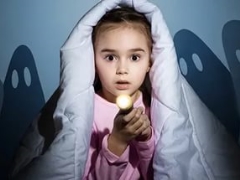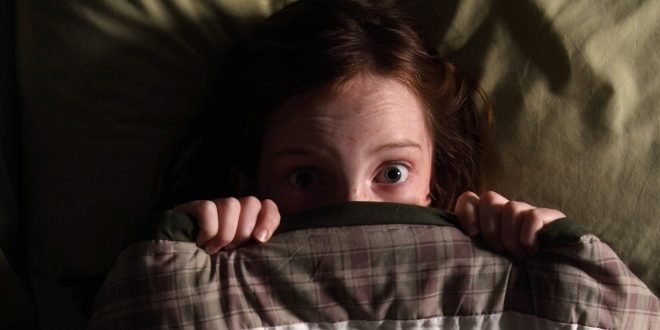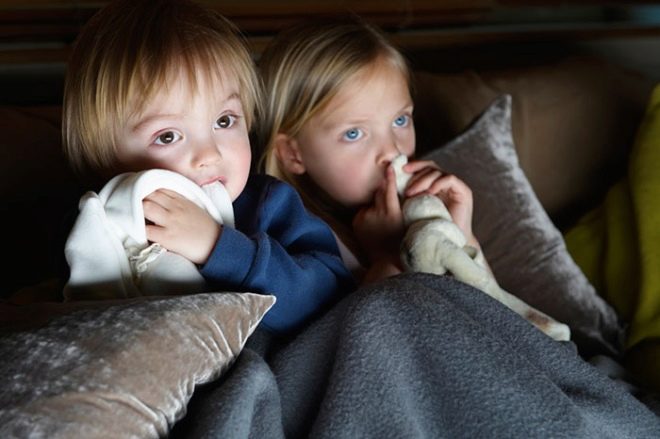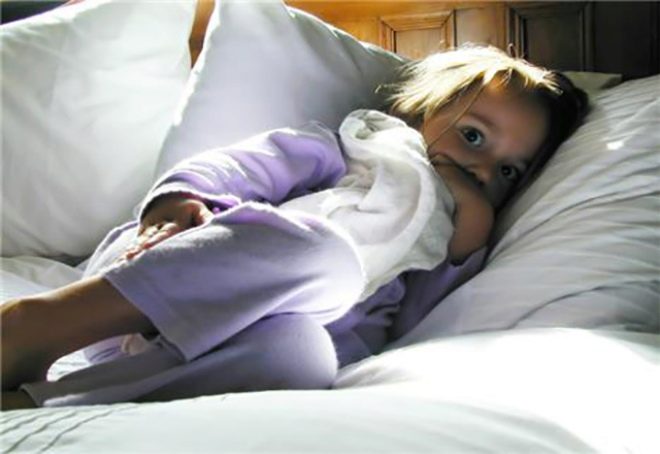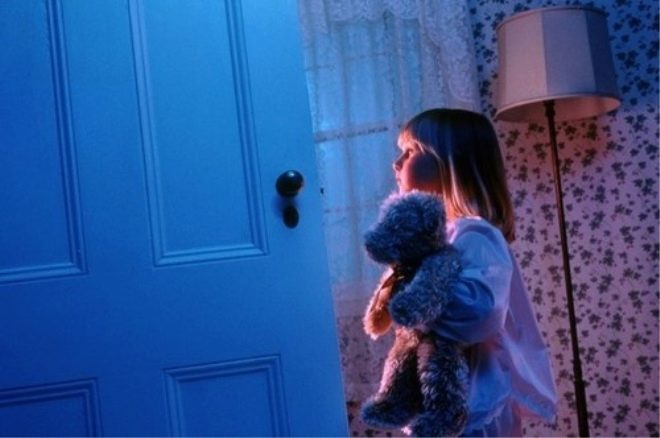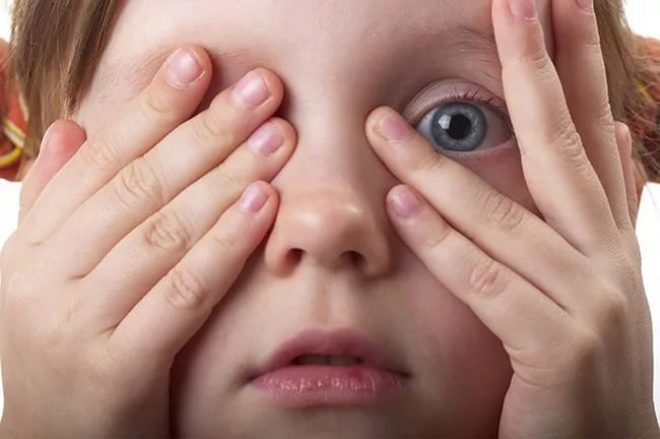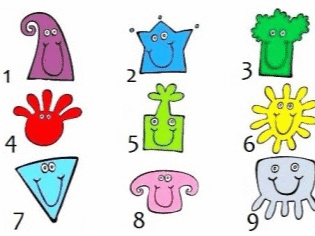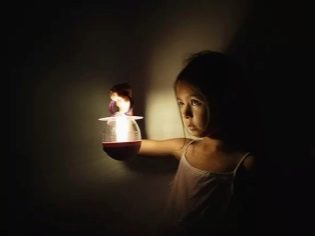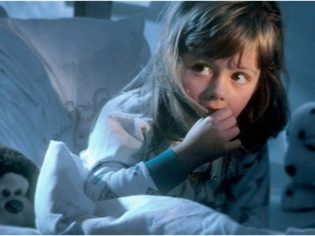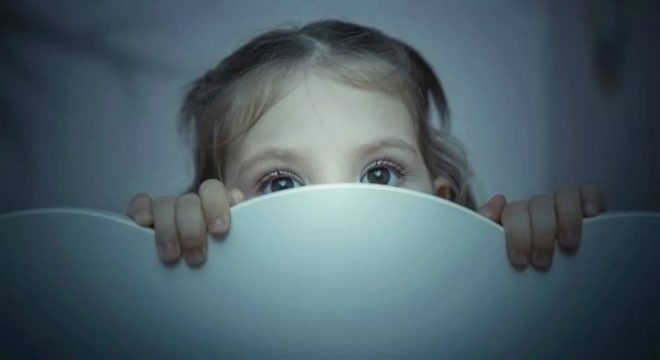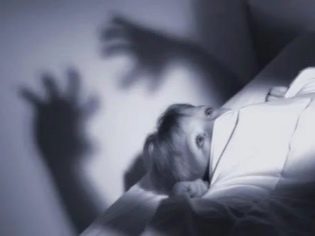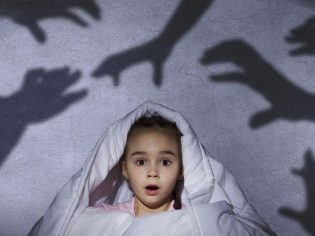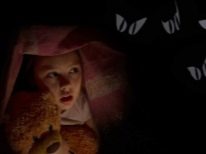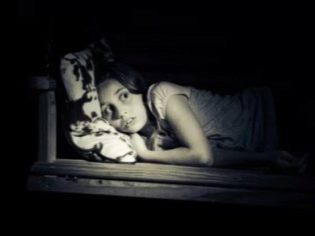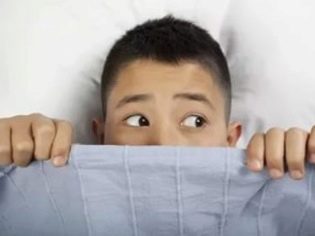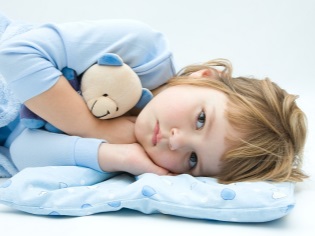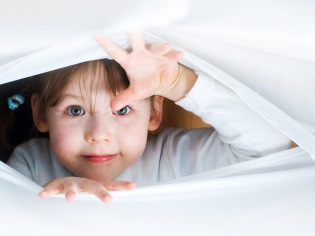Why is the child afraid of the dark and what to do? Psychology tips
I am afraid of darkness. True. Not much, of course, not to pathology, and not always, but in general I am afraid. It all started in childhood. I remember once I didn’t sleep all night: my mother’s coat on a hanger, which was hung on a nail after cleaning, suddenly “turned” into the Peak Dame. I knew, of course, that it was a coat, but fear has big eyes! Moreover, the fantasy did its job - the Lady “moved” almost naturally and looked at me as if. She called her grandmother. She was a decisive woman, in some places even tough, such hut was rebuilt and the fields plowed after the war.
Grandma did not find a better solution than forcing me to go across the entire dark room to this terrifying coat hanger so that I myself could see that it was just a coat. I will not describe all my childish horror in the process of overcoming a few meters of that path. I can only say that the episodic fear of the dark remained with me as a reminder of childhood.
I suspect that the grandmother chose the wrong method. Therefore, when my own children began to declare that Babayka, ghosts, newcomers and other “there’s someone there” settled in their rooms in the darkness, I began to act by other methods.
Statistics
- Of the 100 mothers, 80 say that of all kinds of fear their children are afraid of the dark. Thus, 8 out of 10 children aged 3 to 10 years are afraid of dark rooms.
- In 80% of cases, the fear of darkness is inherited. If it was with the parents, then with high probability, the child will also be afraid of the dark.
- In 10% of people on the planet, the fear of darkness lasts a lifetime.
- In 2% it develops into a disease, nyctophobia.
The reasons
Fear of darkness is not fear of the absence of light as such. This is the fear of the unknown and unpleasant that may be hiding in this darkness. Since in the dark our brain does not receive a clear signal from the organs of sight about the safety of the environment, there is some uncertainty. And if the fantasy is rich, then it will quickly “finish” the missing elements. And please - the terrible picture is ready! Children, as you know, have a greater ability to fantasize, and therefore children's fears are so common.
Fear, as scientists have found, the child begins during intrauterine development. It is then that the crumb is already able to feel, if the mother is anxious, frightened, or very worried.
The unborn child is, of course, still not able to understand what is happening, but its nervous system and brain “remember” the biological response to fear perfectly. As a result, the embryo gets the ability to fear. True, so far instinctively.
When does fear become conscious?
- Most often, the fear of darkness is experienced by children who sleep alone. Therefore, indirectly, the fear of darkness is the fear of loneliness. Even newborns can test it.
- If parents are addicted to "horror stories." “If you don’t eat porridge, I’ll call Babai” or “If you don’t stop messing around, an evil sorcerer will come after you!” In the dark, when the child relaxes before going to bed and mentally, like adults, scrolls through the day's experiences in the head, it is this “Babai” or “evil sorcerer” that can materialize in the imagination of the kid in a dark room.
- If in the presence of a child seniors watch horror movies, tell terrible stories. Remember, the brain of a child, even small and insensible, captures bright images and then reproduces them at the most inappropriate moment.
- If the child often browses news with adults. Any accidental image in a story about a catastrophe, murder, or attack can cause fear of the dark.
- If the child is too much is prohibited.
- If there are serious conflicts in the family, in which children are drawn.
There are several other factors that influence the development of fear of the dark. Strangely enough, but the only children in the family are more prone to this type of phobia. When there is no sister or brother to contact, the level of anxiety in a child is higher.
In addition, the fear of darkness is often peculiar to children of "age" parents. The more years the mother at the time of the child's birth, the stronger she and the household are worried about the "late" crumbs. They run on the first call, groan, gasp and splash their hands. As a result, they grow neurasthenic, easily excitable, infantile baby, very susceptible to fear, and not only darkness.
Darkness is often afraid of children from single-parent families. And the first "bells" of fear come, as a rule, for a period divorce or care of one of the parents.
What should parents do?
1. Talk to your child
In all seriousness, to kindly find out from him what exactly he is afraid of, why, who lives in his dark room, what can he do to the kid and why did he come in general? In other words, in this way you will be able to establish the factor that gave a “start” to the innate program of fear.
2. To control what he saw
It is necessary to make sure that the child does not have access to watching bloody and frightening films, does not play the same computer games. Any fear is like a fire, if you throw firewood in it, it will flare up more and more.
Watch your speech, try not to discuss negative topics in the presence of a child, and even more so you should not scare a naughty kid with evil characters who “will come and take them to the forest”.
3. Explore the room and donate a talisman
Try to explore the dark room with your child. Go through it together or with the whole family, turning on the nightlight, and show the fumes that no one hid in any corner.
I will say right away that this advice does not always work. The fact is that in the presence of parents, the baby seems to be calming down. And as soon as night falls and extinguishes the light, he categorically refuses to be alone. Because from the heart believes that the monsters, which drove the father and mother, will return. Therefore, I prefer the "long-term" prevention.
Mom and dad leave someone or something in the baby’s room that can drive the monsters away. Let it be a specially purchased toy or a new night light. The main thing is for the child to believe that with this thing now nothing threatens him.
4. Visualizing fear and turning it into a good being.
An additional way. Ask the child to draw a monster - so he visualizes it and realizes that he is not so scary, because the imagination always draws more "colorful" pictures. Be sure to turn a monster into a benevolent monster at the end, draw him a wide smile and kind eyes. Talk and play with him with the child.
What parents can not do?
- Criticize and laugh at the child. If your baby has admitted that he is afraid of being alone in his room, go to bed at night because it is scary in the dark, do not criticize him and do not call him a coward. This horror stories hiding near the cabinet are unreal. For a child, they are the real ones. And he is not naughty when he reports about his fear, as some parents think, but he expresses confidence in you. He shares his main misfortune with you.
- Knock "wedge wedge." This is the very method of my grandmother.If a child is afraid of the dark, you should not close it intentionally in a dark room so that he realizes that there is no reason for fear. This can cause panic and consolidate the horror, making it a real phobia.
- In no case can not be included in this game. If the kid says that he has a dragon under his bed, you do not need to look in there and shout: “Oh, and what a terrible truth! Here you will not obey, will surely get out and will bite you by the leg! ". Baby believe. And the fear will increase at times.
Effects
If parents ignore the child's fear of the dark and do not take action in time, the usual childhood fear can become a real pathology. Formed niktofobiya entail still a whole tangle of various fears. This can cause nervous and mental disorders in a child, panic attacks throughout life.
In addition, children's fears, hidden deeply in a person’s subconscious, will become overgrown with a mass of unpleasant and unhealthy complexes. Perhaps the child will not become a sick person, but low self-esteem, fear of change and responsibility are guaranteed.
Age stages of fear
2 years
Children, as a rule, begin to be afraid of the dark at 2 years old, when their imagination is already sufficiently developed and capable of creating holistic images, including negative ones. But kids at this age are still not able to clearly and thoroughly inform parents about their concerns. Therefore, they can wake up at night, make tantrums, stubbornly refuse to sleep in their crib and constantly ask to sleep with their parents.
3 years
At the age of 3, when the crisis begins, associated with the first transitional age, the boundaries of the surrounding world for the child are moved apart. He now knows that there is something else outside the apartment: a playground, a park, a kindergarten ... As experience and knowledge accumulate, fears grow. The child is able to talk about them, draw them at your request. Use this to eliminate the cause of fear.
4-7 years
4 years old almost all children are incredibly impressionable. They have value judgments, they remember events, dialogues, faces well. Coupled with a violent fantasy, all this can lead to fear of the dark.
In 5 years the child actively communicates with peers, and a scare story told by someone in kindergarten or seen on TV can be a reason for nightly fears. The kid is not yet able to distinguish fiction from truth, and his brain will immediately “draw” a frightening image. With five-year-olds, it is important to discuss fears, talk about it yourself and teach the child to think logically.
At 6 years old the child is able to “see” in the darkness of his room the characters of his favorite books and cartoons. Fantastic heroes, not always positive and kind, come, as luck would have it, closer to the night. And unless you fall asleep here!
In addition, associative thinking develops at this age. So, an ordinary chest of drawers can become an evil monster, and a hanging coat (as it was in my case) is a mystical creature. It is important to demonstrate to the child that there is no one in the room.
At the age of 7, the fear of darkness can be the result of the stress that a child experiences when starting school. If persuasion does not help, make a rearrangement in the first-grader's room. Let all frightening objects change their place of deployment.
8-10 years
At 8, the fear of darkness usually recedes. But if the child is still afraid, you should not ignore his problems, thinking that “soon everything will pass by itself”.
At 9 years old, as well as at 10 years old, the fear of darkness is not a frequent occurrence. And usually it is due to the fact that the rapidly growing child of the psyche is changing.This is a normal process, just everyone experiences it in his own way. If the fear of darkness is not panic in nature, there is no reason to worry. With the help of a psychologist, parents can easily cope with an unpleasant situation.
When to contact specialists?
- If the child is already 10 years old, and he is very frightened by the dark room and is afraid to sleep without light. Junior schoolchildren perfectly distinguish where the truth is, and where the tales are. Therefore, stories about the fantastic creatures living in the darkness of his room, should be the reason for going to a psychologist or psychotherapist.
- If the fear of darkness in a child is associated with loud nocturnal tantrums, screams and even the fear of death.
- If the fear of darkness is expressed in panic attacks. The child breathes unevenly, loses consciousness.
Clinical psychologist Veronika Stepanova tells in detail about the work with children's fears in the next video.
Psychologist tips
- The fear of darkness in a child can only be overcome with it. The baby himself can not cope.
- Correctly identified reason Fears quickly tell you how to wean a child to fear the dark.
- If the child has become afraid of the dark already at a conscious age (from 7 to 10 years), it makes sense to review family relationships and find out how the child communicates in a team. Perhaps the reason lies in a conflict situation.
- Give your child additional exercise - write down in the section, circles, where it will require a large release of energy. For fear of strength simply will not remain.
- To show by example how to overcome fears.
- To captivate a child by drawing. The ability to transfer images from imagination to paper allows you to splash out emotions, and the drawn horror story ceases to be scary. Especially if mom adds something from herself to the picture that will cheer up the baby.
- Well helps in the fight against the fear of the dark graphic test. Schoolboys will cope with it. Let the child write about their concerns. Take a “mini essay” with him, and explain that “scary” words are just words. Pay attention to the son or daughter how they are written.
- Use in the fight against the fear of the game. Such, for example, as hide and seek. After all, there you need to hide in dark places. And in the process of an entertaining game, the child will not have time to sense fear.
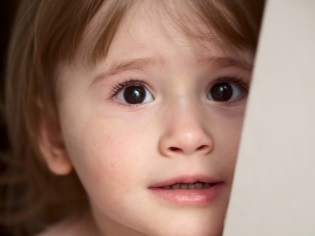
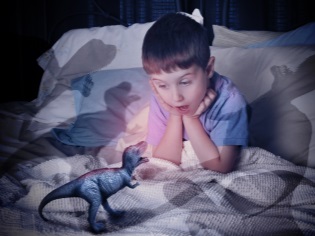
Write down your child for a consultation with a psychologist, if fear goes beyond all reasonable limits, do not ignore his call for help, do not discuss it with outsiders so that the child does not lose confidence in you. There are situations when the fear of darkness is a manifestation of very serious problems. The specialist will help to understand them and tell you how to help the child.
Watch the following videos in which psychologists give their recommendations.
